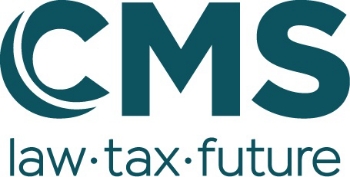Litigants may now seek cartel damages for a longer period as the Federal Court of Justice has affirmed the suspension of the statute of limitations for antitrust claims before 1 July 2005. The court's judgment creates legal certainty and increases Germany's attractiveness as a jurisdiction for plaintiffs in cartel damages cases.
The decision (Case KZR 56/16) is a major setback for defendants in cases concerning cement, truck and sugar cartels (among others), which will face even bigger damages claims. Claimants in these cases can breathe a sigh of relief as their claims are not statute-barred and may continue to be pursued.
Parties injured by a cartel can demand compensation for their losses from the cartel participants – in particular, the cartel-induced extra price of a product or service (overcharge). However, the limitation period for antitrust claims in Germany used to be 10 years after the claim arose, whether or not the injured party knew about its claims. Therefore, claims risked becoming time-barred, as cartels operate in secret and are generally not discovered until years or decades later.
On 1 July 2005 German lawmakers came to the assistance of injured parties and changed the limitation rules. A new rule suspended the limitation period during investigations by an antitrust authority, such as the Federal Cartel Office or the European Commission. It aimed to help parties injured by cartels to exercise their rights and thus strengthened the private enforcement of antitrust rules.
Unfortunately, lawmakers did not regulate (explicitly) the retrospective application of the law. Questions remained as to:
- whether the regulation applied only to claims arising in the future (ie, after 1 July 2005 – the objection frequently raised by the defendants); or
- should claims that arose previously also profit from the suspension of the limitation period (the opinion frequently expressed by the claimants).
On 12 June 2018 the Federal Court of Justice ruled in favour of the cartel claimants. The court acknowledged that the limitation period for asserting cartel damages is also suspended for losses suffered before 1 July 2005, as long as the previous limitation period had not expired before 1 July 2005.
The court expressly referred to a long-standing legal concept, according to which the suspension of the statute of limitations for antitrust claims applies to all claims that had not yet become time-barred at the time of the suspension's implementation.
As lawmakers had not expressly established a deviating rule, the court relied on the early legal principle developed by the former Supreme Court.
The Federal Court of Justice has resolved the dispute between the higher German regional courts in favour of the majority of the legal opinions in this regard. Therefore, damages claims based on cartels before July 2005 are not (necessarily) time-barred.
At the same time, the judgment creates legal certainty among lawyers and their clients with regard to whether older claims are worth pursuing or defending. In practice, the retroactive applicability of the suspension of the statute of limitations will have a major economic impact on a number of ongoing German and international cartel cases – the judgment affects claims and actions amounting to millions. With this decision, Germany has become an even more attractive forum for international plaintiffs in cartel damages claims.
For further information on this topic please contact Frédéric Crasemann or Bernd Neuthor at CMS by telephone (+49 40 37 63 00) or email ([email protected] or [email protected]). The CMS website can be accessed at www.cms-hs.com.
This article was first published by the International Law Office, a premium online legal update service for major companies and law firms worldwide. Register for a free subscription.




